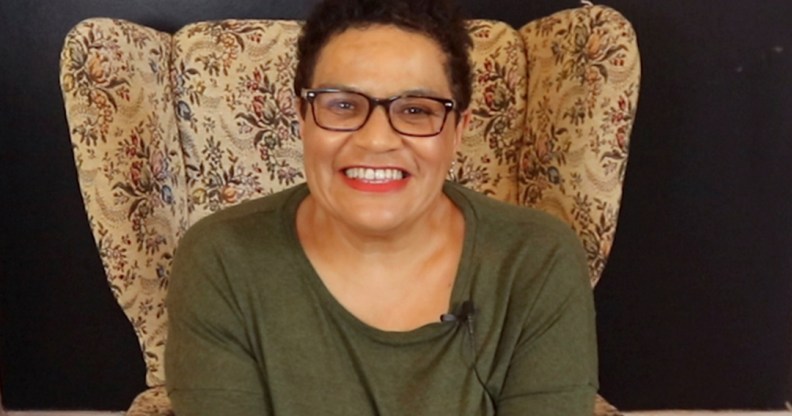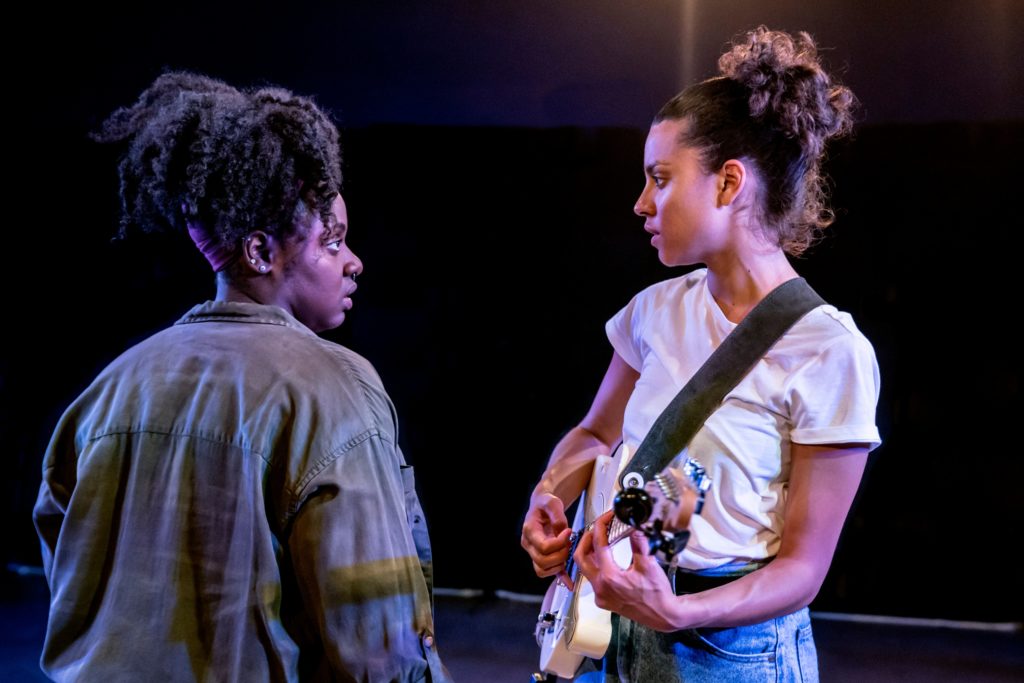Jackie Kay on growing up gay in 1960s Scotland: ‘I really did think I might be the only black lesbian in the world’

Jackie Kay on growing up Black and lesbian in 1960s Scotland
Growing up in rural Scotland made it equally as difficult for Jackie Kay – the Scottish poet laureate – to come to terms with being black and being a lesbian.
Having never met someone who was both black and gay, Kay thought the two were mutually exclusive.
“I wondered if there was anybody else in the world who was exactly like me. I knew that there were gay people and I knew that there were black people but I didn’t know there were any black gay people.”
The thoughts of a young Kay echo the isolation felt by many black queer people growing up in a world lacking positive images of a black queer community.
When she was in her teens Kay really did believe she was “the only black lesbian in the whole world”.
This feeling of isolation was something Kay experienced from a very young age. Adopted by a white Scottish couple, Kay grew up the only black child in an all-white environment on the outskirts of Glasgow in the 1960s.
Jackie Kay explains the struggles of realising that her skin made her the odd one out: “Being black in an all-white environment means that you’re constantly a stranger to yourself.”
“You give yourself a shock when you look in the mirror, all you’re seeing are faces that are white and so you’re quite surprised by your own face even,” explains Kay.
Realising she was a lesbian was similarly isolating for Kay, who recalls a traumatising art class when she was 16 where a bully announced to the whole class that she was a lesbian.
Her teacher then turned to 16-year-old Kay and probed her about her sexuality: ““Well, are you Jacqueline? Are you a lesbian?”
Themes of sexuality, blackness and identity are explored in the first play Kay ever wrote ‘Chiaroscuro’. The play explores themes of identity while dissecting Blackness and queerness and addressing homophobia and racism.
The play has been revived by artistic director Lynette Linton as part of the Bush Theatre’s ‘Passing the Baton’ initiative, which aims to rediscover the work of successful and established artists of colour who carved their way through British theatre.

Shiloh Coke as Beth and Anoushka Lucas as Opal in Chiaroscuro (Johan Persson/Bush Theatre)
While the play was written in 1986, grappling with homophobia, racism and black identity is still a contemporary issue something Kay was hoping would be drastically different in the future she imagined.
Growing up the daughter of members of the communist party, Kay thought “racism and homophobia were battles that could be fought and won”. However, the right-wing groups of Kay’s past, the British Movement and the National Front, can be replaced with the EDL and Britain First in her present.
One of the things that changed Kay’s life was discovering the work of black lesbian writers such as Audre Lorde who eventually became a friend. In a world where she was struggling with the parts of herself that felt conflicting, Lorde’s work kept her company.
Eventually finding a group of black queer women, including Lorde, Kay began to understand the importance of having a community around you who understands your world view.
Jackie Kay had a close relationship with Lorde until her death in 1992. The pair met when Kay was in her early 20s and she played a major part in how she began to shape her identity.
Lorde was the first person that Kay interacted with who had a “long list of things after her name, mother, warrior, Zami” and taught Kay that you don’t have to choose between all the ways your identity intersects. Telling Kay: “You can be black and Scottish, you don’t have to choose”.
Kay now identifies as “a mother, a lesbian, black, a writer, Scottish” with a birth father from Nigeria and birth mother from the Scottish Highland”. You can be black, you can be Scottish and you can be a lesbian and there is strength in embracing all of those parts of you.
Although Kay doesn’t think it’s easy to be black and gay today just look at the countries where it’s still it’s illegal, Kay believes the change in attitudes towards the LGBT+ community is one of the biggest single changes in the course of her lifetime.
Chiaroscuro is on at the Bush Theatre until October 5th.

